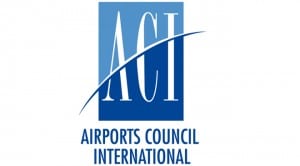 A U.S. government shutdown is unlikely given that it is a mid-term election year, and work toward convincing the U.S. Congress to raise the cap on Passenger Facilities Charges will expand as the Federal Aviation Administrating funding reauthorization again comes before Congress next year, according to Annie Russo, chief political and congressional strategy officer at Airports Council International-North America
A U.S. government shutdown is unlikely given that it is a mid-term election year, and work toward convincing the U.S. Congress to raise the cap on Passenger Facilities Charges will expand as the Federal Aviation Administrating funding reauthorization again comes before Congress next year, according to Annie Russo, chief political and congressional strategy officer at Airports Council International-North America
Russo and Montette Pasher, president of the Canadian Airports Council, joined ACI-NA president and CEO Kevin Burke on stage at the organization’s annual conference to discuss the latest legislative developments impact airports.
Russo said despite rumblings about the lack of a budgetary agreement this year, in all likelihood Congress will come to some sort of an agreement before the current budget expires at the end of this month.
Burke agreed, noting that in an election year, a government shutdown would be “suicide for both parties.” He noted that the momentum has shifted. Six months ago it looked like Republicans would take control of both the Senate and House of Representatives. Now, he said, pundits are predicting that Democrats will keep the Senate while Republicans will gain a slight majority in the House.
The balance of power will determine how ACI-NA approaches its efforts on reauthorization, Taplin noted. “We really have to put everything we’re talking about in context of what the possibilities are and what the political landscape looks like post-election,” she said, noting that the messaging shifts depending on which party is in the majority.
“One of the really important lessons that I think the industry learned [during the pandemic] and, quite honestly, the reason for the great success we had in receiving funds from the federal government was that we got the messaging, right,” Russo continued. “It was easy and simple to understand, and it was clear, and we were able to capitalize on what members of Congress were seeing as they walked through airports and there was nobody there. Because we spent so long trying to explain airport financing and airport funding, members of Congress and senators, they really got it and they helped us. We need to piggyback on that good work that we have done over the last few years, get our messages right… and take advantage of the political landscape in order to have success on that bill.”
In Canada, Pasher says the country’s ongoing pandemic-related restrictions are divisive, with the minority Conservative party pushing heavily for removal of remaining travel barriers. She also noted the ongoing challenges faced by airports and airlines to ramp up service to meet demand.
“Our [Members of Parliament] are getting a little tired of hearing about airport issues,” Pasher said. “We’ve been a bit of a sore spot for them, and they’ve been in hot water because of it.
“I think we need to come back this fall with a future focus – how can we help innovation?” she continued. “We need to improve our processes. They’re a partner with us in that they are government agencies – how are we going work together to make this better, to modernize our border? That’s really going to be our messaging moving forward because they want to be solutions-orientated too.”
Pasher added, though, that significant funding help is a long-shot. “We didn’t get the support that we needed financially throughout the pandemic,” she said. “If they weren’t going to be there to support us in a big way, at the hardest time we’ve ever faced, I think we would be a little bit naive to think [they would be supportive] in a massive way in the short term as well, but we still need to keep pushing.”





